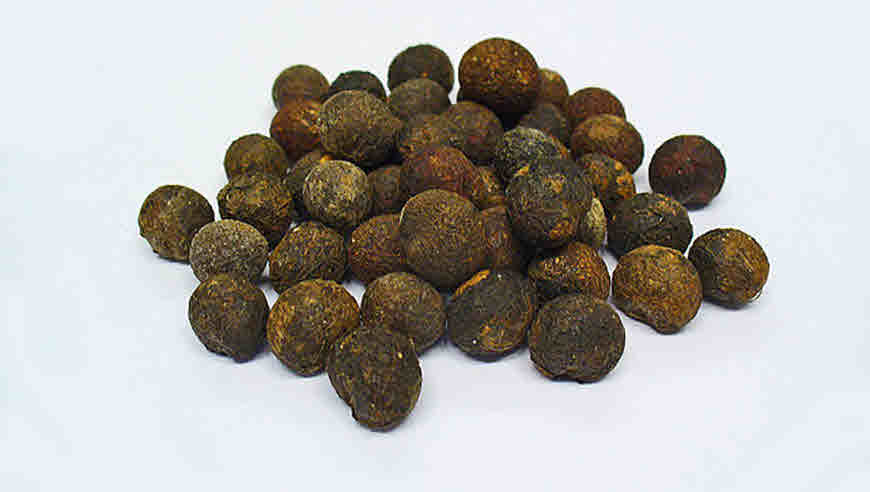Cocculus Indicus is commonly known as Indian Cockle.
The homeopathic remedy in form of tincture is prepared from attenuations of the young leaves and twigs.
It is the picrotoxin alkaloid content of Cocculus which possess the toxic effect when given in a crude form and is of great homeopathic therapeutic purpose when given in dynamic doses.
It belongs to the family Menispermaceae, from the vegetable kingdom.
It is the most important polychrest remedy that has an action on almost every part of the body and especially on the brain and cerebrospinal nervous system, voluntary muscular system, and sensorium.
Cocculus is a great remedy for convulsions and paralysis.

Cocculus Indicus Constitution /Personality
Cocculus Indicus is a remedy, best suited for women and children with light hair and eyes who suffer severely during menstruation and pregnancy, unmarried and childless women.
It is suitable for people who are bookworms, sensitive romantic girls with irregular menstruation, onanist, and persons debilitated by sexual excesses.
It is best suitable for people who are of a slow mind and sluggish temperament.
It is suitable for people of nervous temperament, in whom psora is in the background, in general, all complaints are aggravated from the sun.
Guiding symptoms of Cocculus Indicus
Cocculus indicus is a highly effective remedy for various brain-related conditions. It particularly addresses spasmodic and paretic affections, especially those affecting one-half of the body.
This remedy has a notable impact on the cerebrum and is capable of treating convulsive seizures originating from the spinal cord.
It is particularly valuable in cases of tetanus, characterized by painful contracture of limbs and trunk.
Cocculus indicus is prominently featured in the list of remedies for disorders arising from the adverse effects of night-watching.
It is especially beneficial for light-haired females, particularly during pregnancy, relieving symptoms like nausea and backache.
The symptoms are exacerbated during carriage rides or on shipboard, making it an excellent choice for treating seasickness.
It is also utilized for weakness accompanied by a sensation of hollowness or emptiness, as if parts of the body have gone to sleep, and the patient feels too weak to speak loudly.
Many homeopaths use Cocculus indicus to address nervous disorders such as vertigo, nausea, and vomiting induced by riding in a carriage, boat, or railroad car, as well as seasickness and car sickness.
This remedy is indicated when there is a state of great lassitude, with the patient feeling the need for significant effort to stand firmly and talk.
Cocculus indicus is effective for patients experiencing a sensation of time passing too quickly. It is particularly useful for mental effects arising from grief, anxiety, vexation, and prolonged loss of sleep.
In cases of mental disturbance, including excitement leading to trembling of hands and legs, Cocculus indicus is a valuable remedy.
For fevers taking a slow, sneaking nervous form with symptoms like vertigo and a tendency towards anger, Cocculus indicus is a great choice.
During menses, symptoms such as piles, debility, nervousness, and anger may worsen. Additionally, there may be a substitution of leucorrhea for menses, making Cocculus indicus a beneficial remedy in such cases.
Cocculus Indicus Uses
This article will cover from head to toe all the complaints body. And wherever the symptoms are matched, this medicine can be used-
Mind symptoms
Cocculus indicus is beneficial for patients who exhibit capriciousness, experiencing a heavy and dull sensation in the head.
This remedy is particularly valuable when the perception of time is distorted, and the patient becomes deeply engrossed in daydreams.
Cocculus indicus is indicated for individuals who feel an inclination to sing, and this inclination is difficult to resist.
It proves useful for those who are slow in understanding, with a mind that feels numb and a profound sense of sadness.
The patient may struggle with finding the right words to express thoughts, indicating a slowness of the mind. Forgetfulness is also common, with difficulty remembering what has been read.
In terms of emotions, the patient cannot tolerate contradiction and tends to speak hastily. There is a significant concern and anxiety about the health of others.
Cocculus indicus is effective in treating the mental effects of grief, anxiety, vexation, and prolonged loss of sleep.
It is a valuable remedy for addressing weakness of the mind, where the patient feels unable to articulate thoughts appropriately.
Head symptoms
Cocculus indicus is a highly effective remedy for vertigo and nausea, particularly when triggered by riding or sitting up.
This remedy is indicated when there is a feeling of emptiness in the head, and headaches start at the back of the head and neck. The discomfort worsens when lying on the back of the head.
For sick headaches induced by carriage riding, Cocculus indicus is a wonderful remedy. Patients may find it unbearable to lie on the back of the head during these headaches, and there is often contraction of the pupils.
In cases of headaches with a sensation of opening and shutting, especially in the back of the head (occiput), Cocculus indicus is a valuable remedy.
Eyes symptoms
Cocculus indicus is a beneficial remedy for eye issues, often associated with headaches. In some cases, pupils may be contracted. Symptoms include dim sightedness and disturbances in vision.
This remedy is particularly effective for addressing paralytic weakness in the muscles of the eyes, including those responsible for accommodation.
Cocculus indicus is also a wonderful remedy for migraines accompanied by pain in the eyes.
Ears symptoms
Cocculus indicus is a remarkable remedy for inflammation of the ear canal. It is characterized by throbbing and fullness in both ears, often accompanied by ringing and buzzing sensations.
In cases of otitis media (middle ear inflammation), Cocculus indicus proves to be highly effective, especially when vertigo is experienced upon rising and sitting up. Symptoms may exacerbate when riding in a carriage.
Mouth symptoms
Cocculus Indicus is a great remedy for paralysis of the tongue, the tongue is tremulous and breath fetid.
The Speech is inarticulate and thick, on account of the weakness of memory the patient is unable to find proper words as he is forgetful.
Face symptoms
Cocculus indicus is prominently featured among the top remedies for facial nerve paralysis.
This remedy is effective for cramp-like pain in the masseter muscle, especially worsening when opening the mouth.
In cases of prosopalgia (facial pain), particularly in the afternoon, Cocculus indicus is indicated. The pain may radiate widely across the face.
Facial symptoms include the face becoming pale and sickly, and in some cases, the face may appear bloated. There can be a deathly pallor with facial pains, accompanied by vertigo and nausea. Tearing pains in the face are also common.
Cocculus indicus is a valuable remedy for neuralgia of the face, characterized by quivering and twitching of the facial muscles.
Numbness of the face, accompanied by twitching, jerking, numbness, and even paralysis, is another indication for Cocculus indicus. Tearing pains, prostration, and nervous exhaustion often accompany various complaints for which Cocculus is suitable.
Throat symptom
Cocculus indicus is indicated for throat paralysis, specifically when there is difficulty swallowing food, and the food tends to come back up due to the paralysis of throat muscles.
This remedy is highly effective for paralysis of the voice box, where the patient experiences an inability to speak, and words struggle to come out of the mouth primarily due to weakness in the throat muscles.
Chest symptom
Cocculus indicus is a valuable remedy for asthma, particularly when there is a sense of chest oppression and deep, labored breathing. Patients may feel suffocated, and there is a notable involvement of the chest muscles, leading to weakness and difficulty in breathing.
This remedy is effective in addressing respiratory distress syndrome, where there is a considerable effort required to take a deep breath. The paralysis of chest muscles adds to the challenge, contributing to the overall difficulty in breathing.
Heart symptoms
Cocculus Indicus can be given to the patient when there are weak palpitations of the heart, there is pressing pain in the heart, with dyspnea at night.
It is indicated in heart complaints when there is paralysis and weakness of the heart muscles.
Stomach symptoms
Cocculus indicus is highly effective for nausea triggered by motion, such as riding in cars or boats, or even by observing a boat in motion. This nausea worsens when becoming cold or taking cold.
In cases of nausea accompanied by faintness and vomiting, along with an aversion to food, drink, and tobacco, Cocculus indicus is a valuable remedy. The metallic taste in the mouth is a notable symptom.
This remedy is beneficial for the paralysis of muscles that hinders swallowing, coupled with dryness of the esophagus.
For seasickness characterized by stomach cramps during and after meals, Cocculus indicus proves to be a wonderful remedy.
Many homeopaths use Cocculus indicus for hiccups and spasmodic yawning.
Individuals requiring Cocculus indicus may have a desire for cold drinks, especially beer.
There is a peculiar sensation in the stomach as if one has gone without food for an extended period until hunger has disappeared, and the smell of food may be distasteful.
Abdomen and Rectum symptoms
Cocculus indicus is prominently featured among the top remedies for addressing a distended abdomen, particularly when there is a feeling as if it’s full of sharp stones, especially when moving.
This discomfort is alleviated by lying on one side or the other.
For gastralgia, characterized by violent attacks and cramps in the stomach, Cocculus indicus is a great remedy. The pain in the bowels may feel as if the intestines are pinched between sharp stones, leading to fainting and vomiting.
In cases of colicky pains in the bowels, especially with significant abdominal distension as seen in typhoid fever, Cocculus indicus is highly effective.
Tension in the abdomen after drinking and flatulent colic are also indications for this remedy.
The presence of tearing, cutting, and spasmodic pains in the bowels, along with radiating pains accompanying diarrhea, can be effectively addressed with Cocculus indicus.
This remedy is valuable for the paralytic condition of the rectum, where there is an inability to exert pressure during a bowel movement.
Urging to stool and a burning sensation in the rectum may be present, but peristaltic motion in the upper intestines is lacking.
Urinary symptoms
Cocculus Indicus has got a wonderful action on urinary Organs, it is useful in the paralysis of the bladder, there is a weakness of the urinary tract, and the urine is retained in the bladder with no sensation of urination.
The patient has to wait some time before the urine flows and, the urine dribbles out after the stream ceases, indicative of loss of control in the process of urination.
Male symptoms
The male patients of Cocculus Indicus usually suffer from impotence due to weakness of the muscles of the penis, difficulty erection due to paralysis of the muscle of erection.
It is a useful remedy for an ailment that occurs due to onanism, excess of sexual indulgence causing weakness.
Female symptoms
Cocculus indicus is highly effective in addressing various aspects of female reproductive health. It is indicated for dysmenorrhea with profuse dark menses, which may be early and clotted.
The presence of spasmodic colic during menstruation often leaves the patient feeling extremely weak and barely able to stand.
In cases of pre-menstrual syndrome, Cocculus indicus is valuable when there is painful pressing in the uterine region, followed by the development of hemorrhoids.
This remedy is beneficial for leucorrhoea characterized by purulent, gushing discharge between menstrual cycles.
The discharge can be very weakening to the point that the individual can hardly speak.
Cocculus indicus is also a wonderful remedy for dysmenorrhea associated with severe spasmodic agitation and sleeplessness.
In cases of miscarriage, Cocculus indicus can be a valuable therapeutic option.
Hand and Leg symptoms
Cocculus Indicus is indicated for the treatment for paralysis with lameness worse by bending.
There is trembling and pain in the limbs, and the arms go to sleep.
It is used by many homeopaths in treating one-sided paralysis, worse after sleep. The hands are alternately hot and cold with numbness and cold sweat now of one, now of the other hand, the extremities become numb and unsteady.
It is indicated when the Knees crack in motion and the lower limbs are very weak, with inflammatory swelling of the knee.
All the joints of the hands and legs are intensely painful, paralytic drawing. Limbs straightened out, painful when flexed.
Back symptoms
Cocculus Indicus is indicated to treat cervical spondylitis with Cracking of cervical vertebrae when moving the head. It is indicated in paralytic pain in the small of the back.
There is pain in the shoulder and arms as if bruised with pressure in the scapula and nape of the neck. There is stiffness in moving shoulders.
Fever symptoms
Cocculus Indicus is the remedy for certain types of diphtheria fevers when there is chill, with flatulent colic, nausea, vertigo, coldness of lower extremities, and heat of the head.
There is sweat in general with a nervous form of low-grade fever accompanied by chilliness, perspiration, and heat of skin.
Sleep symptoms
Cocculus Indicus is also indicated in the patient to treat sleeplessness from long nursing and night watching.
The patient is anxious, has frightful dreams; ill effects from loss of sleep and night watching.
Modalities
Modalities are the factors that, increase or decrease the complaints in a patient.
They are categorized as aggravating factors and amelioration factors.
Aggravating factors make the condition of the illness worse, while the amelioration factor improves the condition of the disease.
It can be time, any part of the day, season, position, or any applications, etc.
Aggravated By
The condition of Cocculus Indicus gets aggravated by eating, after the loss of sleep, open air, smoking, riding in a carriage, swimming, touch, noise, jar, afternoon.
The patient is worse during the menstrual period and after emotional disturbance.
Amelioration By
The conditions of Cocculus Indicus get better with rest.
Relationship with Other Medicine
Cocculus Indicus Complementary Medicines
This remedy completes the process of cure that is started by the first medicine given.
The remedies complementary to Cocculus Indicus are Ignatia and Nux vomica in paralysis.
Cocculus Indicus Similar Medicines
These remedies have many similarities in action but are different in origin, which means the source from which the medicine is prepared is another.
Remedies similar to Cocculus Indicus are Nux Moschata.
Cocculus IndicusAntidotes
Cocculus Indicus antidotes the ill effects of Coffea, Nux Vomica, Cuprum, and Chamomilla.
Cocculus Indicus is Antidoted by
The bad effects of Cocculus Indicus are antidoted by Camphor, Chamomilla, and Cuprum metallicum.
Cocculus Indicus Uses, Dosage & Potencies
The dosage and potency of the medicine depend on the individual case.
Cocculus Indicus 30 Uses
Lower potency is given when very few symptoms of the patient match with the medicine and help the doctor only to diagnose the disease condition.
This potency requires frequent repetition, 3-4 times a day, till the expected result is seen.
Cocculus Indicus 200 Uses
This is considered as higher potency; they are given when the majority of mental symptoms and physical symptoms of Cocculus Indicus match.
Higher potencies are advisable to be not repeated very often; they act for a long duration of days, so the second dose is repeated every 7-days or every 15-days once.
Cocculus Indicus 1M Uses
This is very high potency. One should give it only after careful case analysis, where all medicinal symptoms of Cocculus Indicus and that given by the patient match perfectly.
One should not repeat 1 M potency. It is given 30 days once and waiting for symptoms to disappear.
Cocculus Indicus Q (Mother Tincture) Uses
The mother tincture of Cocculus Indicus is used by many homeopaths to relieve the symptoms associated with paralysis of extremities and seasickness.
It is mainly used to relieve sleep in patients and should only be given when all the symptoms of Cocculus Indicus are matched with the patient’s symptoms.
Take 10 drops of mother tincture in half a cup of water three times a day till the improvement occurs.
Cocculus Indicus 3X/6X Uses
This lower potency of Cocculus Indicus works well to treat the conditions like excessive sleepiness and has a therapeutic effect on patients suffering.
Take 2-3 drops of dilution directly on the tongue thrice a day for 3 months.
Clinical Indication of Cocculus Indicus
- Brain affections
- Cholera
- Colics
- Convulsions
- Fever
- Headache
- Leucorrhoea
- Memory weakness
- Menstrual troubles
- Mental excitement
- Paralysis
- Rheumatism
- Sea-sickness
- Sleep affections
- Vertigo
- Vomiting
Cocculus Indicus Side Effects
Homeopathic medicines are prepared by potentization where the dynamic curative power of the medication is aroused, so homeopathic medicines produce negligible side effects.
If any side effects of Cocculus Indicus are seen mostly like an increase in skin itching or bursting type of pain then it can be antidoted by Camphor, Chamomilla, and Ignatia.
Remember that homeopathic remedies are prescribed based on individual symptoms and characteristics. It’s crucial to consult with a qualified homeopath for proper evaluation and personalized treatment. Homeopathy focuses on treating the whole person, so a detailed case study is necessary to select the most appropriate remedy.
Homeopathic medicines should be taken only when prescribed by a homeopathic physician. Self-medication may aggravate the original conditions.


